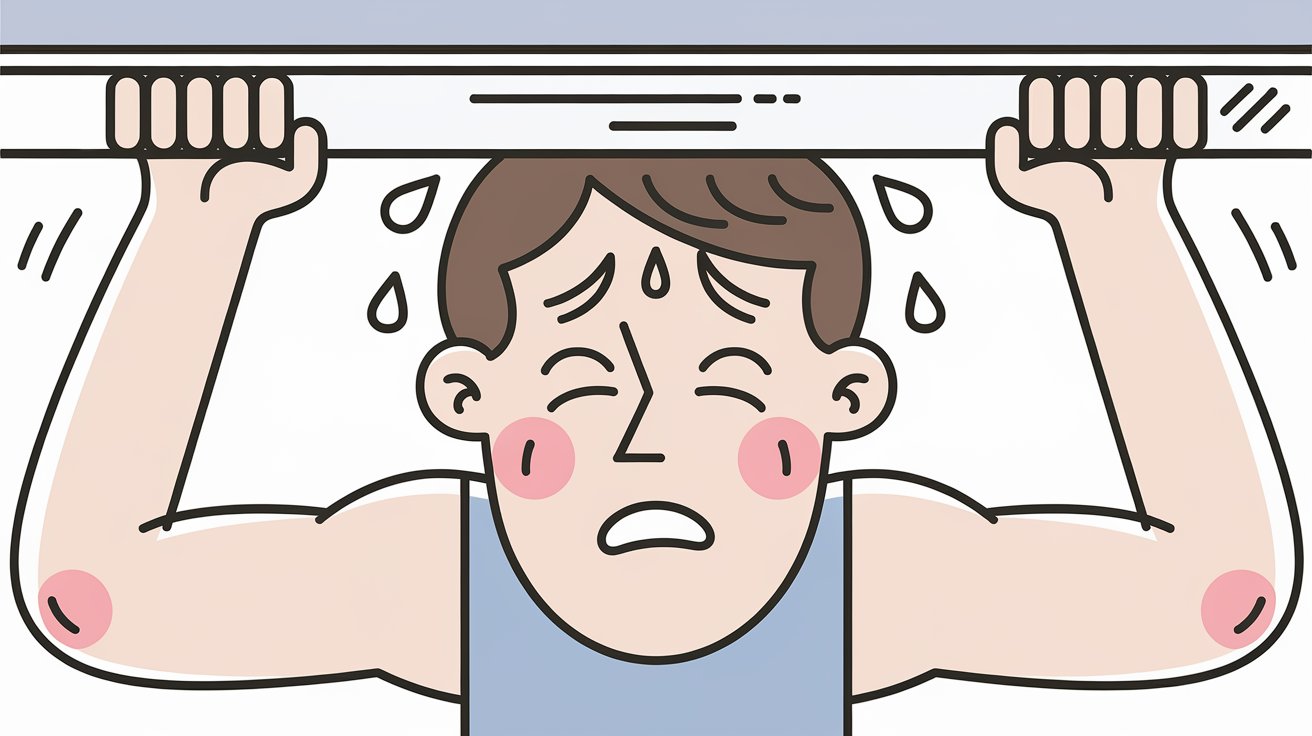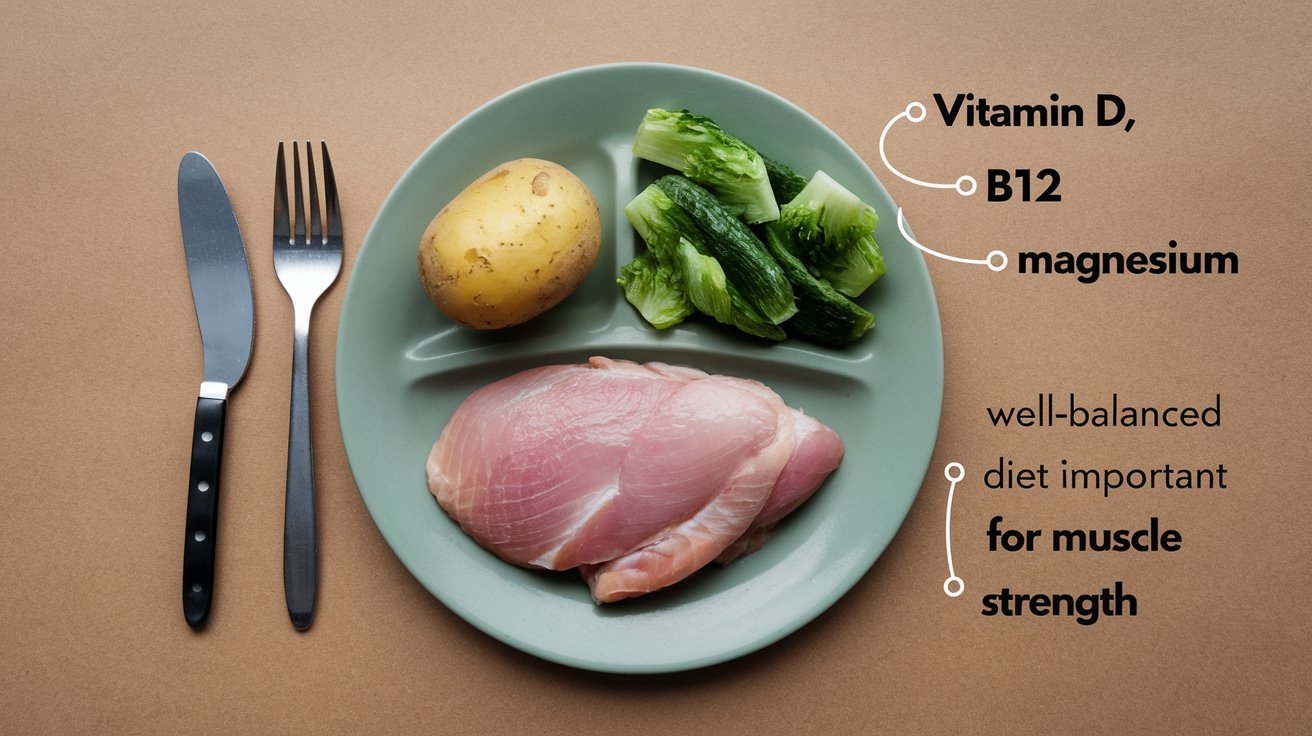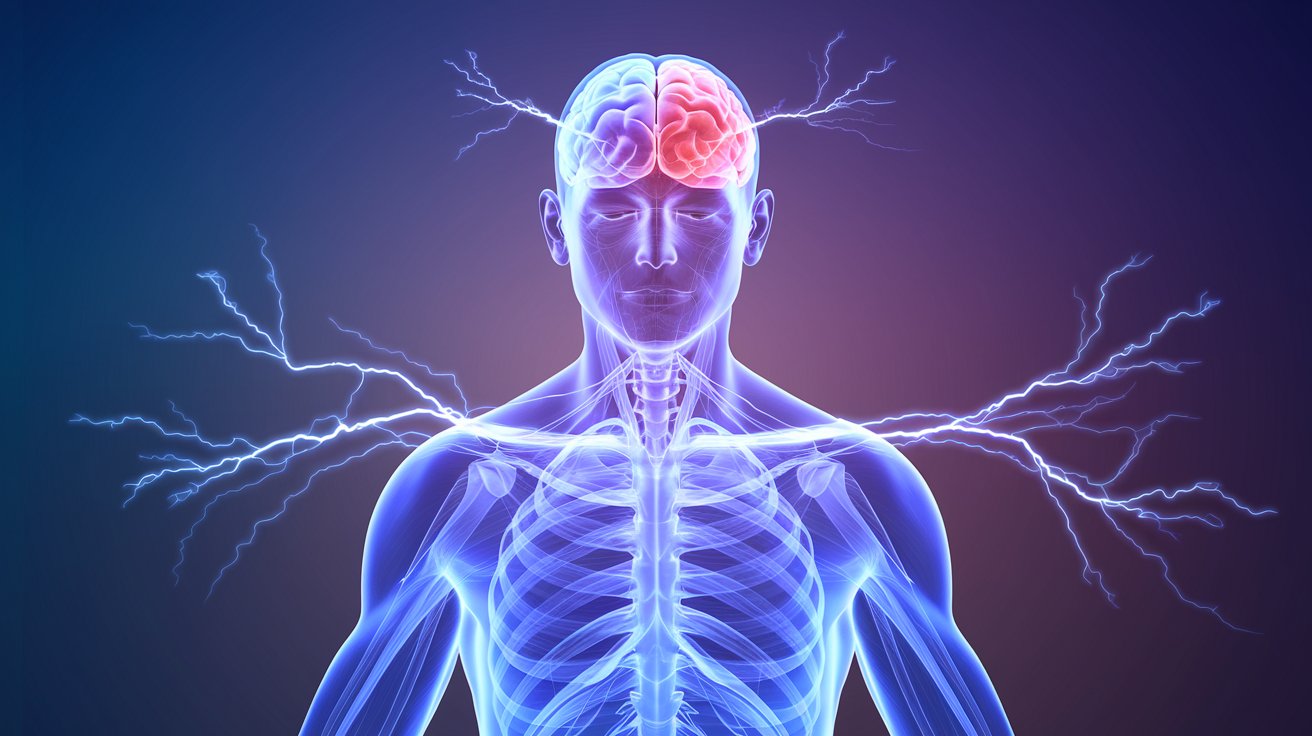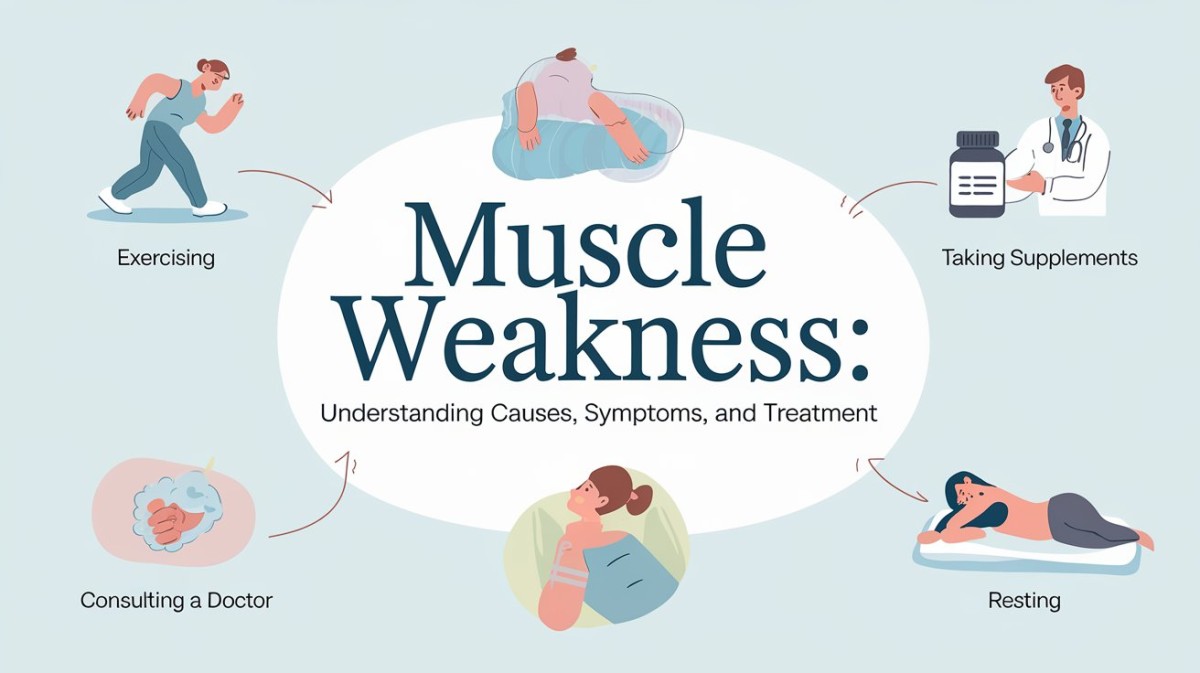Have you noticed that lifting an object or moving from one place to the other is more difficult and you get easily tired? You wouldn’t believe that muscle weakness is much more common than you think, for professional athletes, the young adults at the workplace, and every other man, woman, boy or girl.
But what is the reason for it and how it is possible make muscles more powerful?
Muscle weakness is a multifaceted issue, and in this article, we will look deeper at the causes, signs, and treatment to strength the muscle and keep them healthy.
What is Muscle Weakness?
 Myasthenia disparagingly translates to muscle weakness or in simple term, a condition whereby performing routine activities becomes laborious because of lack of strength in muscles. Muscle weakness is not just like getting exhausted at the end of the working day, it can be typical of the presence of serious diseases, bad habits or traumas that impede proper work of muscles.
Myasthenia disparagingly translates to muscle weakness or in simple term, a condition whereby performing routine activities becomes laborious because of lack of strength in muscles. Muscle weakness is not just like getting exhausted at the end of the working day, it can be typical of the presence of serious diseases, bad habits or traumas that impede proper work of muscles.
There are two types of muscle weakness:
❖ True Muscle Weakness: This occurs when the muscle can’t generate the expected amount of force, even when fully activated.
❖ Perceived Muscle Weakness: Sometimes you may feel that your muscles have lost strength or feels so powerless, yet it is as healthy as it should be. This type normally arises from tiredness, mental disorder, or physical exhaustion.
Common Causes of Muscle Weakness
Skeletal muscle atrophy may be a combination of primary or secondary factors such as life style, diseases and nutritional deficiencies. Here are some of the most common causes:
1. Lack of Physical Activity
 Muscles consist of striated tissue and are analogous to a car engine; to remain strong and operational they need to be exercised. This is what happens when a person is a miserlander. They undergo muscle atrophy, which means that their muscles get weakened because of a lack of exercise. As people sit at their desks, or basically do not move much at all during their work shifts, their muscles begin to atrophy.
Muscles consist of striated tissue and are analogous to a car engine; to remain strong and operational they need to be exercised. This is what happens when a person is a miserlander. They undergo muscle atrophy, which means that their muscles get weakened because of a lack of exercise. As people sit at their desks, or basically do not move much at all during their work shifts, their muscles begin to atrophy.
2. Nutrient Deficiencies
 Based on the available nutrient information, it is known that some nutrients are particularly important for muscles. If there is a lack of such ingredients as vitamin D, B12, potassium, and magnesium, a person loses muscle tone and feels weak. For instance, if an individual fails to take sufficient vitamin D, you will experience muscle pain and weakness because vitamin D controls the amount of calcium that is required for muscle contraction.
Based on the available nutrient information, it is known that some nutrients are particularly important for muscles. If there is a lack of such ingredients as vitamin D, B12, potassium, and magnesium, a person loses muscle tone and feels weak. For instance, if an individual fails to take sufficient vitamin D, you will experience muscle pain and weakness because vitamin D controls the amount of calcium that is required for muscle contraction.
3. Aging
Sarcopenia is a normal part of aging, during which muscle mass reduces gradually. This leads to a host of effects including decreased muscular strength, bulk and muscle endurance thus making it difficult to perform more tasks within the same timeframe. It is normal but strength training and eating nutritious food will delay the occurrence of this stage.
4. Chronic Diseases
Various health conditions can contribute to muscle weakness, including:
❖ Diabetes: Long term effects of high blood sugar levels include damage to the nerves and muscles of the hands and feet, which cause weakness, slows down metabolism and increases the rate of development of new diseases.
❖ Chronic Fatigue Syndrome (CFS): This condition leads to fatigue and continued muscle pain hence hinder the effective functioning of the human body.
❖ Thyroid Disorders: Muscles of the patient may lose strength and the patient may complain of muscle cramps, pain and weakness due to hyperthyroidism or hypothyroidism.
5. Injuries
Other causes of muscle weakness may be due to physical injury such as strain, sprain or a muscle tear. Muscle injuries often cause the muscles to be temporarily weakened when the muscles are healing.
6. Neurological Conditions
 Some neurological disorders interfere with the manner in which the nervous system communicates with muscles. Examples include:
Some neurological disorders interfere with the manner in which the nervous system communicates with muscles. Examples include:
❖ Multiple Sclerosis (MS): A long-term sponsor illness causing the breakdown of control in the mind and backbone; influencing muscles such as making them rigid and affecting coordination.
❖ Myasthenia Gravis: A very rare disease in which muscles are weakened due to failure of nerve and muscle signals to work properly.
❖ Stroke: Sparingly, damages to the blood supply of the brain can lead to muscle weakness or even paralysis, most commonly, only one side of the body.
Symptoms of Muscle Weakness
The manifestations of muscle weakness may vary dependent on aetiology. Common symptoms include:
❖ Problems in carrying objects, or engaging in physical work
❖ Tiredness of muscles after little exercise
❖ Reduction in the environment or energyishops that are used when engaging in any physical activity.
❖ Muscle cramps or pain
❖ Gastrocnemius contraction with trembling or twitching of muscles
❖ Comment on this: Dizziness or balance problems
Diagnosing Muscle Weakness
If you have these persistent muscle weakness symptoms then it is recommended that you should consult your doctor. They may perform:
❖ Physical Examination: Measuring muscular power and tone, reflexes and coordination.
❖ Blood Tests: Testing for deficiencies of any nutrients, functioning thyroid gland or presence of any products indicating muscle damage.
❖ Imaging Tests: Use MRI or CT to exclude any structural disease within muscles or nerves.
❖ Electromyography (EMG): Muse Asst Records electrical activity in muscles in order to assess nerve and muscle performance.
Treatment Options for Muscle Weakness
The management of muscle weakness depends to the kind of underlying disease. Here are some common approaches:
1. Physical Therapy
This is because with a structured physical therapy program the muscles will be built, flexed and developed to be strong and muscular and have the stamina required. Physical therapists can utilize resistance training, flexibility training and aerobic-training to rehabilitate the muscles.
2. Nutrition and Supplements
Protein, vitamins, and minerals are the nutrient requirements that are very useful for the muscles. Key nutrients include:
❖ Vitamin D: Obtainable from insulated foods rich in Dairy products, wealthy fish and sunlight exposure.
❖ Magnesium: Found in raw vegetables especially those of green color, nuts, and seeds.
❖ Potassium: Characterised with banana, potato and spinach. They may also prescribe supplements if after tests, the person is found to be lacking in certain elements in their blood.
3. Exercise
Strength training is the activity that involves strength – training exercises which consist of lifting weights or using resistance bands to increase muscular size, mass and strength. Some forms of exercises like squatting, lunging and push up can all be crucial in building core muscles.
4. Medications
Antiretroviral drugs have been shown to enhance muscles thus providing an indication that treatment of the cause of the condition such as thyroid disorders or diabetes can cause improvements of underlying muscle strength. Some autoimmune diseases can cause the immune system’s response to be over aggressive and may need to be subdued using immunosuppressing medicines.
5. Rest and Recovery
Muscles should not be overworked as doing so can prolong weakness. Adequate amount of rest should also be observed especially if muscle weakness is attributed by too much efforts or injuries.
Preventing Muscle Weakness
Normally, muscle weakness prevention would require the need to take certain measures or lifestyles. Here are some tips to keep your muscles strong:
❖ Stay Active: Perform proper exercises like cardio vascular exercises, weight lifting, or any other that will count down the heart’s rate.
❖ Eat a Balanced Diet: Make sure you have taken enough proteins, vitamins and minerals that can enhance muscle-well being.
❖ Hydrate: To keep the muscles functioning well, the person must ensure they take a lot of water.
Avoid Overexertion: If you do high intensity exercises, do not overtrain; take some rest in-between the exercises.
Conclusion
Muscle weakness indeed does interfere with one’s day-to-day life however, if handled appropriately it may be prevented or at times reversed. Having the knowledge of what caused your muscle weakness and getting an appropriate mix of exercise, nutrition, and medication should help you regain your loss muscle strength. Whether you are dealing with effortless fatigue or more severe complications, such as muscle difficulties or pain, its treatment at a earlier stage will have positive effects on muscles in the future. If you find that your muscles remain weak, therefore, seek advice from a-doctor so that he or she could treat you and particularly; develop a fitness regimen that you should follow.
